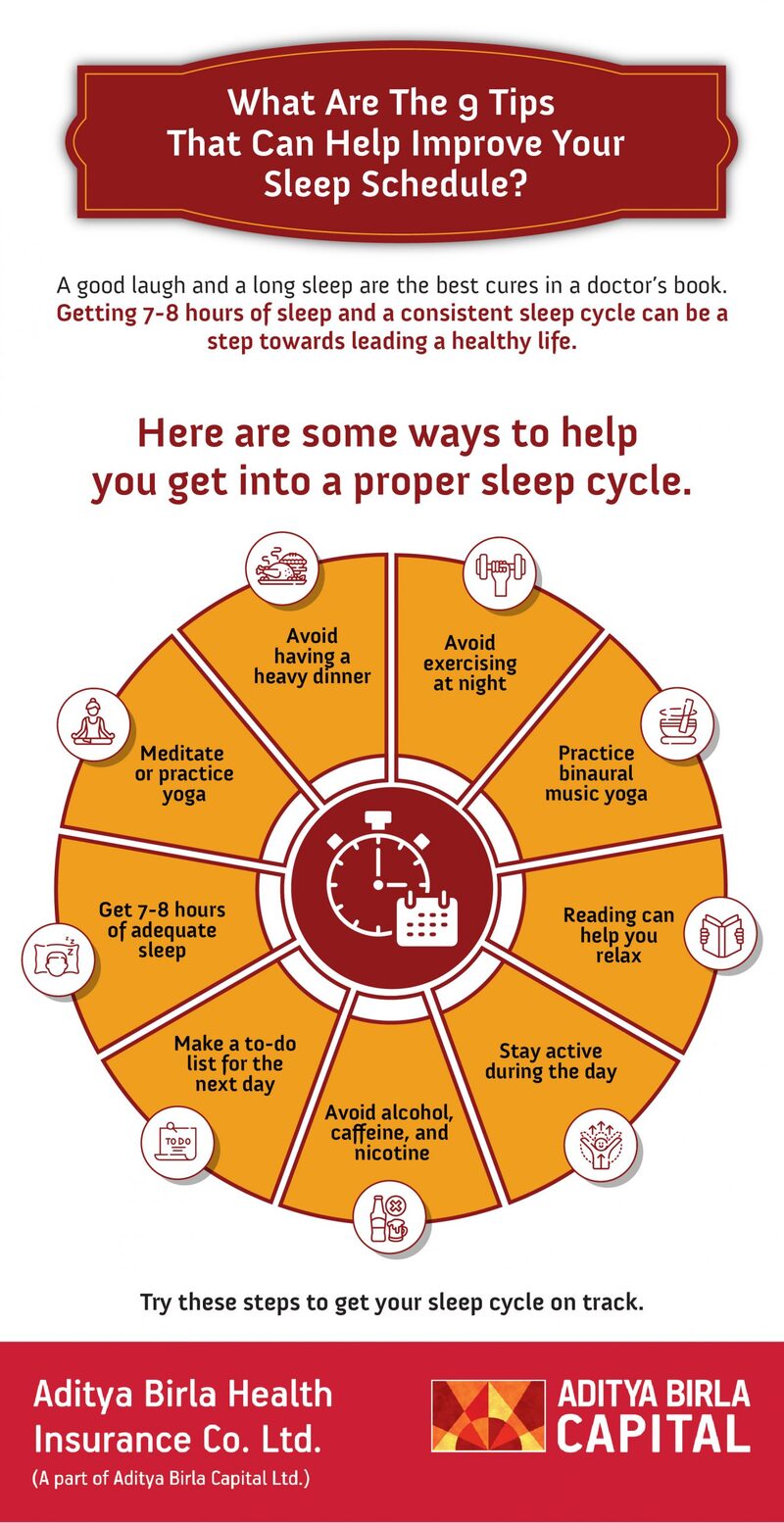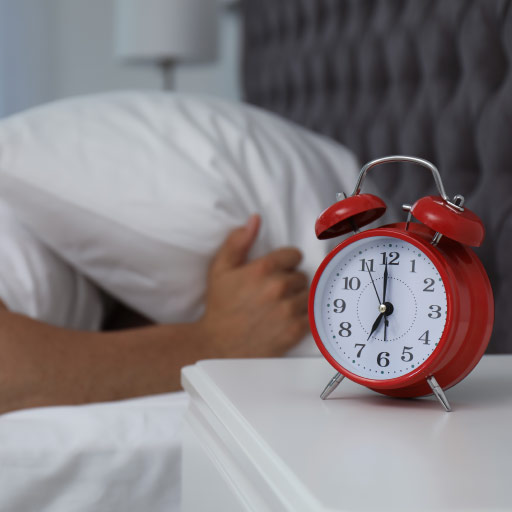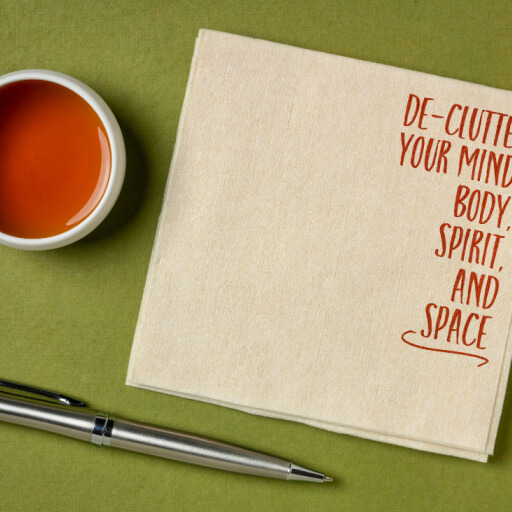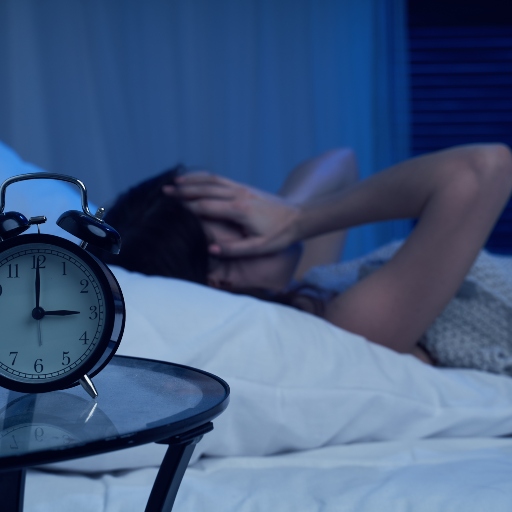
A consistent sleep schedule is essential to get adequate rest and lead a quality life. Sleep deprivation can slow your metabolism, cause stress, hypertension, an increased risk of heart diseases, and weight gain. Sticking to a proper sleep schedule can help you make informed decisions, improve your emotional well-being, boost your mood, decrease the risk of lifestyle conditions, improve your immunity, and make your day productive.
However, if you are not tired during your designated bedtime, forcing yourself to sleep might be counterproductive since you will only be spending more time on the bed rather than sleeping. Take a look at some steps that can help you stay true to a fixed sleeping cycle.
- Create a wind-down schedule at the end of each day. Engage in relaxing activities such as meditation, yoga, deep breathing, visualizing, or journaling before you hit the hay, as these can help you sleep better.
- Avoid having a heavy dinner closer to your bedtime as it overloads your digestive system. For optimal sleep, ensure that there is at least 1-2 hour gap between supper and bedtime.
- Exercise during daylight as it can help release endorphins. Avoid exercising as a post-workout boost can keep you up at night.
- If you are unable to sleep, try practicing binaural music yoga. It comes with many benefits, like enhanced sleep, positivity, better focus and attention, and improved memory.
- A bedtime reading ritual can help decrease cognitive arousal and de-stimulate your brain after a long day of hustle. Opt for paperbacks rather than e-books. The blue light that a tablet or smartphone releases can disturb your circadian rhythm, interfere with your body’s production of melatonin, keep you up for a longer period, and affect the quality of your sleep.
- Avoid taking naps closer to your bedtime. Take a short walk, drink a glass of fresh water, or try any other physical activity to brush off afternoon energy slumps.
- Avoid alcohol, caffeine, nicotine, or any other chemical that can make it difficult to fall asleep, thereby impacting your sleep cycle. They lead to a withdrawal cycle, further causing restlessness.
- Individuals have many thoughts racing through their minds at night. They are stricken with stress and anxiety, due to which sleep doesn’t come easily. In such a scenario, it is best to plan a to-do list of tasks for the next day.
- Set a bedtime early enough for you to get 7-8 hours of adequate sleep every day.
Stay active in the Activ Living Community to find more details on nutrition and lifestyle.





 1800-270-7000
1800-270-7000









